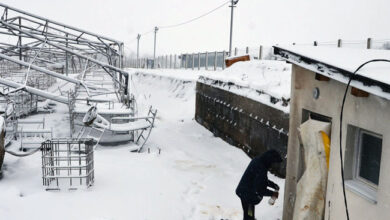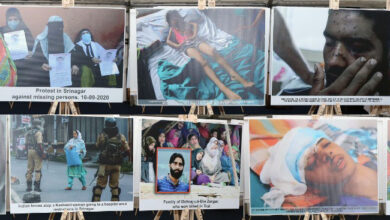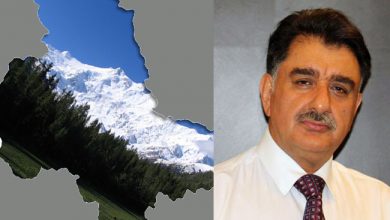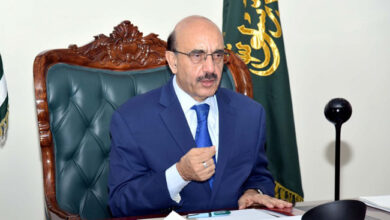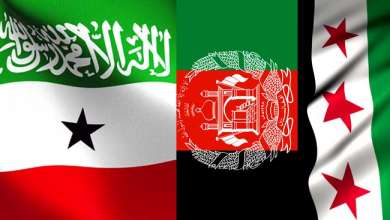Speakers at KIIR webinar express concern over crippling effect of UAPA on dissent in IoK
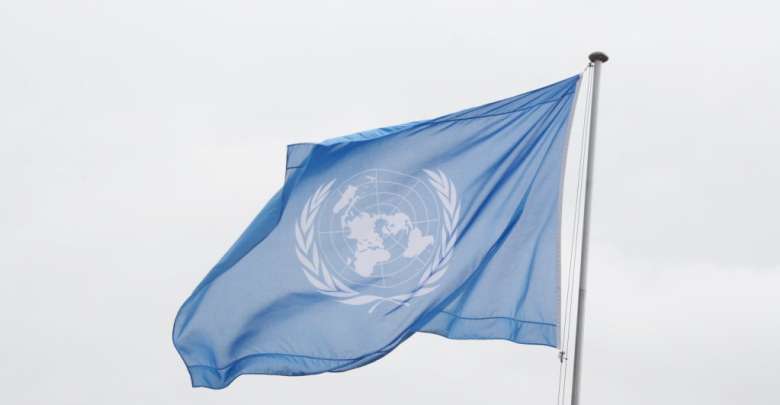
Say notorious law being used to silence HR activists, journalists, political leaders
Islamabad: Speakers at a Webinar organised by Kashmir Institute of International Relations (KIIR) in collaboration with World Muslim Congress on the sidelines of 47th session of the UN Human Rights Council, expressed their grave concerns over the misuse of UAPA and other draconian laws against human rights defenders, journalists, political activists in Kashmir
The webinar titled “Use of Repressive Legislations Like UAPA and Others to Silence Freedom of Expression” was attended by noted human rights activists, scholars, academicians, international law experts and representatives of civil society rights organizations hailing from different parts of the world including former MEP Ms Julie Ward the former member European Parliament, Dr. Claude Rakisits, Barrister Tanvir Munim, Duke Salman Khan, Dr. M Shahid Amin Khan, Ambassador Malik Nadeem Abid, Dr. Prof. Shagufta Ashraf, Advocate Pervez Shah and others. Whereas the event was moderated by chairman KIIR Altaf Hussain Wani.
Speakers while voicing their serious concerns over the crippling effect of black laws on dissent in Kashmir said that the rampant use of the laws such as UAPA, PSA and other laws have led to ruthless suppression of dissent in the region.
Along with arbitrary arrests and unlawful detentions of thousands of Kashmiris they said that the misuse of these law has also led criminalization of journalism and legitimate opinions, muzzling of the media and controlling the narratives. “It is rampantly used against people the BJP government deemed a political threat or dissenting”, they said.
In Kashmir, they said, the notorious law was being frequently invoked against political leaders, activists, academicians, journalists, rights defenders and members of civil society to ensure silence of a grave-yard and homogeneity in the society.
Referring to recent amendments made in the law they said, “With recent amendments –this legislation has become so severe that it allows the government to jail for six months, without a trial or bail, anyone they might deem capable of committing a crime in the future”.
Terming it as a dangerous piece of legislation, they said, the law authorizes the government to declare an individual a terrorist either at the time of filing a charge or only after conviction in terrorism-related cases. “The law is in contrast to the principle of “innocent until proven guilty”, they said the law facilitates the government to set aside civil liberties, fundamental rights and detain or criminalize an individual.
“The law has been enforced in Jammu and Kashmir with a basic intent to terrorizes the society”, one of the speakers said.
Referring to post 5th August 2019 scenario, they said that in year 2019, 255 cases were registered against different individuals under the UAPA. About the increase in the number of persons arrested under the draconian law they said, ““Whether it’s a political activist, protester, journalist or someone else, UAPA is being slapped randomly”.
“No one has been spared, even mourners were arrested and booked under the black law”, they said, while referring to the arrest of Mushtaq Wani the father of a slain youth who along with five of his relatives –were booked under Section 13 of the Unlawful Activities (Prevention) Act, 1967, just for demanding return of the dead body of his son who was killed in a fake encounter. They said that besides booking Kashmiris under UAPA, the occupation authorities have now been seizing properties of Kashmiri political activists under Section 25 of the Act.
According to official data by the National Crime Records Bureau, 921 UAPA cases were registered in Jammu and Kashmir between 2014 and 2019.
Terming llegislations such as the UAPA as in direct contravention of the fundamental freedoms they observed that “the UAPA and other laws hav been used by Indian authorities as a tool to criminalize the exercise of civil liberties”.
They said that along with leaders of political parties a large number of journalists including a senior journalist and author Gowhar Geelani and Masrat Zuhra, Pirzad Ashiq Hussain, Naseer Ganai, Irfan Malik and others were booked under the UAPA. The detentions under the law were aimed at controlling the narratives and criminalize dissent.
Referring to a letter addressed to the Indian government, they said, a team of Special Rapporteurs of the United Nations had strongly criticised the misuse of the law against human rights defenders and journalists in Kashmir.
The speakers lamented that despite the international community’s growing criticism and concerns the Indian government was shamelessly using the law as a weapon to Silence Freedom of Expression.
“The black laws prevalent in the disputed territory of Jammu and Kashmir and unwarranted restrictions on expression and movement of independent journalists in the region on the other hand have prevented the voices of Kashmiris reaching the international community”, the maintained.

